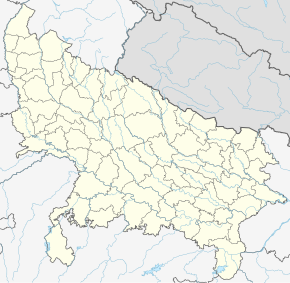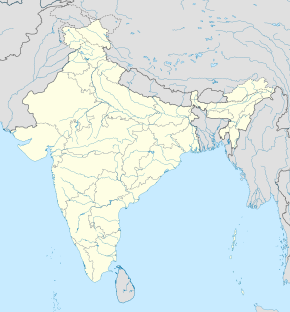Draft:Atai Khan's Attack on Meerut
| Submission declined on 18 June 2024 by MicrobiologyMarcus (talk). This submission is not adequately supported by reliable sources. Reliable sources are required so that information can be verified. If you need help with referencing, please see Referencing for beginners and Citing sources. This submission does not appear to be written in the formal tone expected of an encyclopedia article. Entries should be written from a neutral point of view, and should refer to a range of independent, reliable, published sources. Please rewrite your submission in a more encyclopedic format. Please make sure to avoid peacock terms that promote the subject.
Where to get help
How to improve a draft
You can also browse Wikipedia:Featured articles and Wikipedia:Good articles to find examples of Wikipedia's best writing on topics similar to your proposed article. Improving your odds of a speedy review To improve your odds of a faster review, tag your draft with relevant WikiProject tags using the button below. This will let reviewers know a new draft has been submitted in their area of interest. For instance, if you wrote about a female astronomer, you would want to add the Biography, Astronomy, and Women scientists tags. Editor resources
|  |
| This is a draft article. It is a work in progress open to editing by anyone. Please ensure core content policies are met before publishing it as a live Wikipedia article. Find sources: Google (books · news · scholar · free images · WP refs) · FENS · JSTOR · TWL Last edited by Explicit (talk | contribs) 4 months ago. (Update)
Finished drafting? or |
| Atai Khan's Attack on Meerut | |||||||||
|---|---|---|---|---|---|---|---|---|---|
| Part of Third Battle of Panipat | |||||||||
| |||||||||
| Belligerents | |||||||||
|
|
| ||||||||
| Commanders and leaders | |||||||||
|
|
| ||||||||
| Strength | |||||||||
| 10000 Cavalry | 10000 Cavalry | ||||||||
| Casualties and losses | |||||||||
| Unknown |
2000 Maratha Soldiers Killed 20000 Marathas were slain at the camp | ||||||||
Location within Uttar Pradesh | |||||||||
The Atai Khan's attack Meerut was a military Skirmish initiated by Emperor Ahmed Shah Durrani in an attempt to capture Govind Pant Bundele, who had taken refuge in Meerut.[3][4]Emperor Ahmad Shah Abdali dispatched Atai Khan with a small army of Afghans to Meerut. Govind Pant Bundele was ready to face the Afghan forces with his light cavalry of ten thousand soldiers. A fierce battle ensued between the two adversaries in Meerut.
Background
[edit]On the afternoon of October 26th, a significant battle erupted in Samalkha[3]. The Afghan forces were under the direct command of the emperor, while the Marathas were led by Govind Pant Bundele.[5]The Afghans gained victory in the battle, prompting Govind Pant Bundele to be executed.[3] After the confrontation, Govind Pant Bundele sought refuge in Meerut.[3] Subsequently, the emperor deployed Atai Khan, along with the elite cavalry, to apprehend Govind Pant Bundele in Meerut.[3][6]
The Battle
[edit]In later encounters, Govind Pant Bundele, together with 10,000 informally trained cavalry who were not officially enlisted as soldiers, was involved in a foraging mission with around 500 men.[5] They were ambushed by an Afghan force near Meerut, resulting in a clash in which Govind Pant Bundele was killed by Atai Khan.[7][8] This was further aggravated by the loss of a detachment of 2,000 Maratha troops who had left Delhi on a mission to transport funds and provisions to Panipat.[9][10]
Aftermath
[edit]The passing of Govind Pant Bundele greatly distressed Sadashiv Rao Bhau.[11] He mourned the loss of around 22000 inhabitants within the Maratha empire.[3] Subsequently, the Maratha armies confronted Afghan forces at the battlefield of Panipat, resulting in a historical defeat.[12]
- ^ Kadam, Vasant S. (1993). Maratha confederacy. Munshiram Manoharlal Publishers. p. 68. ISBN 9788121505703.
- ^ Joglekar, Jaywant (2006). Decisive Battles India Lost (326 B. C. to 1803 A. D.). Lulucom. pp. 90–91. ISBN 9781847283023.
- ^ a b c d e f Barua, Pradeep (2005-01-01). The State at War in South Asia. U of Nebraska Press. p. 60. ISBN 978-0-8032-1344-9.
- ^ Andhare, B. R. (1984). Bundelkhand Under the Marathas, 1720-1818 A.D.: A Study of Maratha-Bundela Relations. Vishwa Bharati Prakashan. p. 119.
- ^ a b Srivastava, Ashirbadi Lal (1966). The Mughal Empire, 1526-1803 A.D. S. L. Agarwala. pp. 476–477.
- ^ Haryana State Gazetteer. Haryana Gazetteers Organisation, Revenue Department. 2001. p. 230.
- ^ The Cavalry Journal. 1932. p. 62.
- ^ Haryana State Gazetteer. Haryana Gazetteers Organisation, Revenue Department. 2001. pp. 229–230.
- ^ Barua, Pradeep (2005-01-01). The State at War in South Asia. U of Nebraska Press. p. 60. ISBN 978-0-8032-1344-9.
- ^ Sainik Samachar. Director of Public Relations, Ministry of Defence. 1965. p. 23.
- ^ Haryana State Gazetteer. Haryana Gazetteers Organisation, Revenue Department. 2001. pp. 229–231.
- ^ Mehta, Jaswant Lal (2005-01-01). Advanced Study in the History of Modern India 1707-1813. Sterling Publishers Pvt. Ltd. p. 282. ISBN 978-1-932705-54-6.



